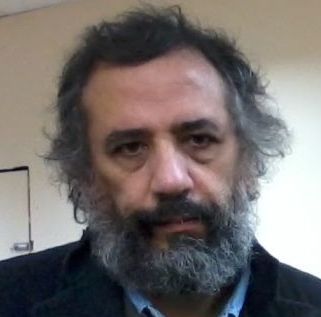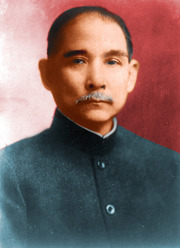

 By VennerRoad, 8th Feb 2015
By VennerRoad, 8th Feb 2015
Sun Yat-Sen was the leading Chinese statesman of the late 19th and early 20th Centuries.

Sun Yat-Sen (1866-1925)
In ancient times, China produced a number of renowned philosophers and political thinkers, the most famous being Confucius and Sun Tzu, the latter of whom is best known as the author of The Art Of War. In modern times however, who has China to offer – Chairman Mao? Best give him a miss! The 19th Century did though produce one outstanding Chinese philosopher/politician/statesman whose name deserves to be far better known, not only in the West but throughout the world, Sun Yat-Sen.
Born November 12, 1866, Sun qualified as a medical doctor, became a fluent English speaker, and converted to Christianity. He also became an American citizen, and spending much of his life in exile, lived for a time in London where in 1896 he was tricked by a Chinese Government agent and held prisoner within the embassy. He would almost certainly have been murdered were it not for the intervention of a rather stubborn fellow doctor, James Cantile.
Eventually, Dr Sun returned to China where he died in 1925 aged only 58. Although he was a pivotal figure in the overthrow of the Qing Dynasty in 1911, it might be argued that ultimately he failed as a revolutionary with the rise of Communism, but his true legacy is his political testament which was translated into English as The Three Principles Of The People. In Mandarin Chinese this renders as San Min Chu I, and is also the title of the Taiwan national anthem.
There are at least two hard copy English language translations, the abridged translation by Frank W. Price is probably the best, although other translations can be found on-line. The bedrock of The Three Principles Of The People is a series of lectures delivered by Dr Sun between January and August 1924. So what are the three principles? Nationalism, democracy and livelihood. Put simply, it is fine being a citizen of a great nation, but what if you have absolutely no say in how it is run? And what use is suffrage if a man cannot provide for his family? A modern nation state must solve all these problems.
For Dr Sun, government was purely about running the country for the benefit of the masses; its power was to be administrative only; the real power, political power, was to remain in the hands of the people; for this, they required four rights as set out in his lecture of April 26, 1924: suffrage, recall, initiative and referendum. How many of these do most of us have today?
In an earlier lecture, he rejected spurious Western and in particular Marxist notions of equality, which result in a levelling down. Like his illustrious predecessor Confucius, Dr Sun realised that some men are superior while others are anything but. The role of the superior man is to assist rather than subjugate those lower down the food chain, as Dr Sun himself put it: “Everyone should make service, not exploitation, his aim. Those with greater intelligence and ability should serve thousands and ten thousands to the limit of their power and make thousands and ten thousands happy”. (Quoted from the September 1981 printing).
Such language is not universally popular today, but the sentiments are, as is evinced by for example the spirit of the Internet which offers us free e-mail accounts, free blogs, free translators, free everything. This software was developed by highly intelligent, talented, innovative men and gifted to the rest of us. True, they’ve made plenty of money out of it themselves, but after making their first billion, most people look around for other ways to achieve personal satisfaction, and fortunately for the rest of us, they do so by giving back.
Dr Sun did not die a wealthy man, but his legacy is celebrated in many places, in the West as well as in his native China, including a memorial park in Vancouver, and a modest plaque at the site of his lodgings in Central London where he lived in 1896.
To Wikinut Articles Page